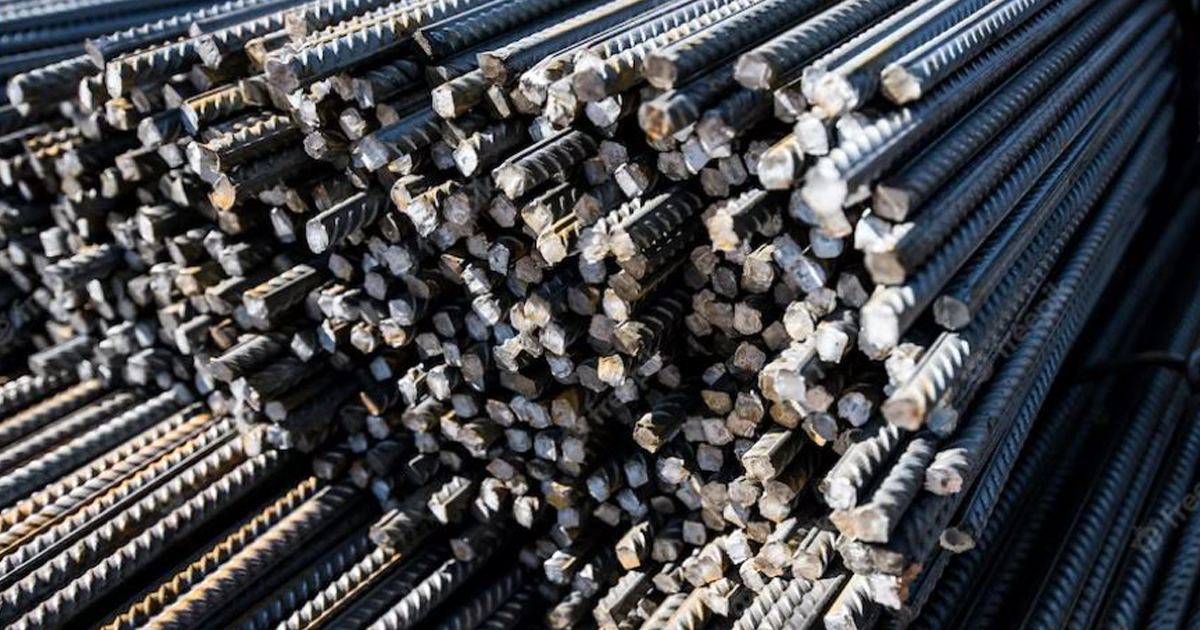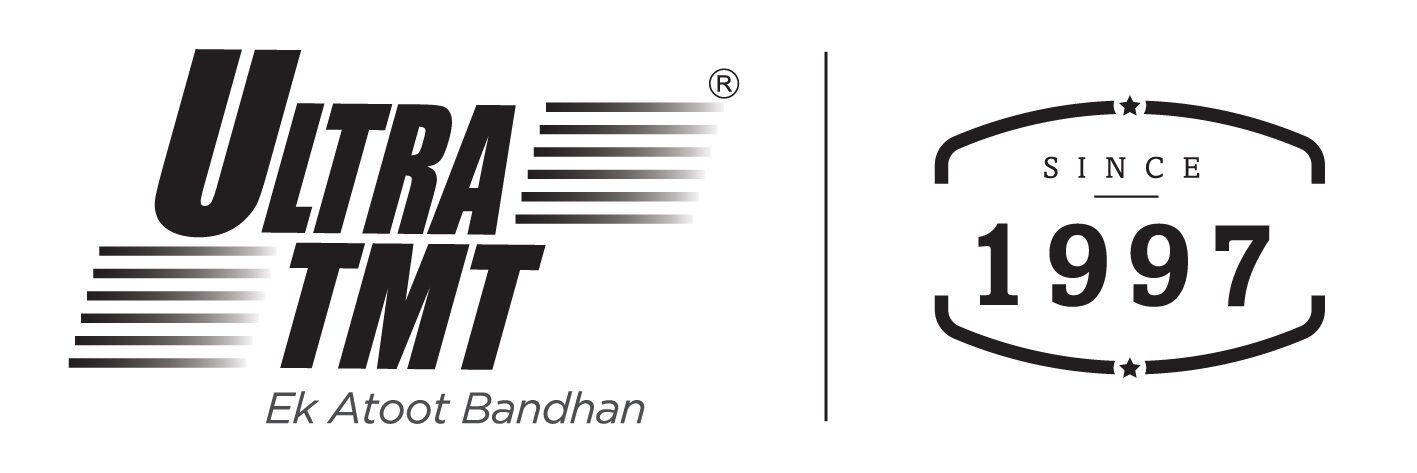

Which Size of TMT Bar is Good For Construction?
TMT steel bars – The Gold Standard of Steel Bars!
Introduction
TMT (Thermo-Mechanically Treated) steel bars, also known as reinforcement bars or rebars, are widely used in the construction industry to provide strength and stability to reinforce concrete structures. These bars are manufactured by subjecting mild steel billets to a series of processes involving heat treatment and mechanical deformation.
In the industry, TMT Steel bars are recognized as the Gold Standard mainly due to the features and attributes, making TMT Steel bars superior. TMT Steel Bars are widely accepted in the industry. They come in different grades and different sizes, catering to the specific needs of the structure.
Let’s do a deep dive into the division of TMT Steel Bars in grades and in sizes to understand how TMT steel bars are used in construction of different structures.
TMT Steel Bars: The division in Grades!
The grade of a TMT Bar mainly reflects the Minimum Yield Strength, i.e. the tensile stress required to produce an elongation of the bar. Minimum yield strength is measured in megapascals (MPa). The widely used grades of TMT steel bars in India are: Fe 415, Fe 500 and Fe 550.
Fe 415 Grade Steel Bar: The yield strength of Fe-415 steel bar is 415 MPa, which is ideal for small to medium-scale construction projects as it provides adequate strength and reinforcement.
Fe 500 Grade Steel Bar: Fe-500 TMT steel bar has a higher strength and load – bearing capacity with a yield strength of 500 MPa when compared to Fe-415. This makes it suitable for construction projects with heavy loads and stresses.
Fe 550 Grade Steel Bar: the yield strength of Fe-550 steel bar is 550 MPa which makes it ideal for heavy-duty constructions and infrastructure projects, requiring high strength and durability.
These are some of the grades of the TMT Steel bars which have optimum attributes to serve the Indian construction industry are
TMT Steel Bars: The Division in Sizes!
In the industry, TMT steel bars come in various sizes, each of them suitable for a particular kind of project. The choice of the right size of TMT (Thermo-Mechanically Treated) for construction is made based on a number of factors which include the project’s structural needs, load-bearing capability, and engineering specifications. Typically, the diameter of the TMT bars also plays an important role in the selection. The diameters range from 6mm to 40mm.
Generally, the TMT bars with bigger diameter, i.e. 20 mm to 40 mm are used in the construction of bridges, dams, high-rise buildings and other large-scale projects, which essentially need thicker sized TMT bars.
The smaller size of TMT Bars (6 MM to 12 MM), on the other hand, are commonly used for residential buildings, small-scale constructions, or non-load-bearing elements like lintels or small beams.
TMT Steel Bars: The Choice of Grades and Sizes!
When TMT steel bars are chosen for the construction of a structure, it is important to select the appropriate grade and size of the bar. Engineers, architects, and local building codes and standards determine the type of grades and sizes of TMT bars used in the construction of the project.
Ultra TMT – A Proven TMT Brand!
From the beginning, Ultra TMT had the zeal to give the best of product and service to this industry. All the strategies, planning and resources were invested in the same direction such that it would help Ultra TMT become the market leaders in South India. Our belief was strong,and our focus was to make sure we become a brand that would become a catalyst for the construction industry. With a vision to be an integral part in nation building, Ultra TMT has grown by leaps and bounds and become one of the most trusted brands of TMT steel bars. To know more about Ultra TMT or to get a quote contact us.
FAQ
The difference between a TMT bar and a normal bar is the composition and strength. TMT (Thermo-Mechanically Treated) bars are manufactured by subjecting them to a combination of heat treatment and mechanical processes, which enhances their strength and ductility. This process involves quenching the bars in water after they are heated to a high temperature, followed by self-tempering. As a result, TMT bars exhibit superior tensile strength, elongation, and corrosion resistance compared to normal bars. Additionally, TMT bars have a soft ferrite-pearlite core and a tough outer martensitic layer, which contributes to their improved seismic resistance and structural integrity. In contrast, normal bars do not undergo such specialized treatment and have relatively lower strength and durability. Hence, in construction projects which require high quality reinforcement, TMT bars are widely preferred for their superior mechanical properties and ability to withstand seismic forces.
Several factors need to be considered while identifying the best TMT bars. Firstly, it is crucial to assess the brand reputation and credibility of the manufacturer. Look for renowned brands that have a proven track record of delivering high-quality TMT bars. Secondly, consider the grade and certification of the bars. Look for bars that comply with national and international standards, such as IS 1786:2008 for India or ASTM A615/A615M for the United States. Thirdly, evaluate the manufacturing process. The best TMT bars are produced using advanced technology and adhere to strict quality control measures, ensuring uniformity and consistency. Additionally, check for features like rib patterns, which enhance the bond strength with concrete. Lastly, consider factors such as corrosion resistance, elongation, and yield strength, as they determine the overall durability and performance of the TMT bars. By carefully considering these factors, you can identify the best TMT bars that meet your specific construction requirements.
TMT bars, or Thermo-Mechanically Treated bars, have a wide range of uses in the construction industry. They are primarily used for reinforcing concrete structures to provide strength and durability. TMT bars are commonly used in the construction of buildings, bridges, dams, flyovers, and other infrastructure projects. Due to their high tensile strength, they effectively withstand heavy loads and seismic forces, making them ideal for earthquake-prone areas. TMT bars are also corrosion-resistant, ensuring the longevity of structures even in harsh environmental conditions. Moreover, their superior bond strength with concrete enhances the structural integrity and stability of buildings. TMT bars are available in various sizes and grades, making them versatile for different types of construction applications. Overall, TMT bars are essential components in the construction industry, providing the necessary reinforcement to ensure safe and resilient structures.
